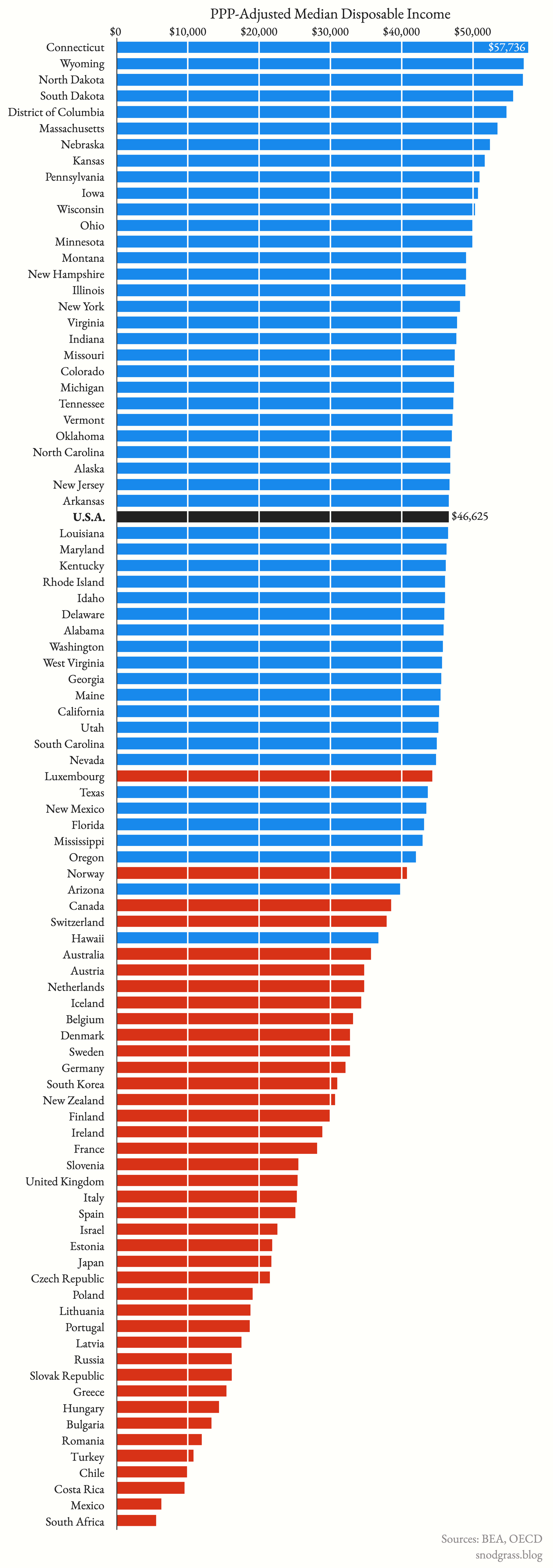A Reminder That Europe Is Poor
The same policy conversation follows me around dinner tables. Someone holds out this or that European country as an exemplar of a preferred policy, or to show a deficiency with the United States. Sometimes these arguments are strong, sometimes not, but they are always confused because they miss a basic fact: compared to the U.S., Europe is poor.
According to the IMF, the U.S. has a PPP-adjusted GDP per capita of $80,035, the highest in the world except for tax havens and petrostates. The E.U. average, by comparison, is $56,929, almost 30% lower. That’s 30% less material wealth being produced every year, adjusted for cost of living. European incomes have even begun to decline.
Usually I don’t bring this up, so as not to disturb the levity and repose of a good dinner, but sometimes I’m feeling impish or just plain nasty. When I do bring it up, my interlocutors protest. A figure like GDP per capita is flawed, they say; it doesn’t capture inequality, or Europe’s more expansive welfare benefits. But the OECD collects all this information. With median disposable income, we can look at what the median person actually receives, accounting not only for income from wages and salaries but also the various benefits and social transfers they receive, minus taxes. The difference here becomes only starker: the U.S. PPP-adjusted median disposable income is $46,625, ahead of even tiny Luxembourg and oil-rich Norway. Nearly every state is ahead of nearly every European country.

Here my interlocutors usually depart from matters of fact entirely, but I think it’s important not to dismiss their arguments—or at least the spirit of their arguments—out of hand. The numbers above cut both ways.
30% more income hasn’t fixed any number of problems. U.S. life expectancy and healthcare expenditures have diverged from other rich countries. Building a subway in the U.S. costs several $100 million per mile more than in Europe or Japan. We’ve yet to fix NIMBY housing policies, opioid overdoses, and a high murder rate.
When we see the comparative politics in this way we can ask, for example, why the Netherlands seems to function so well with only the GDP of Illinois. Or why a country as poor as Spain can build high-speed rail so much more efficiently than the U.S. Or why most Americans would prefer to live in, say, Italy than Mississippi. Maybe popular perception is so delusory that Americans don’t grasp what Italy is like outside of tourist zones, or that an American income buys a lavish stay in Rome or Florence (or Athens, or Madrid, or Dublin), but I think my interlocutors are right in that there are dimensions of human flourishing not captured by the numbers above. The numbers, though, should be the starting point for such debates.